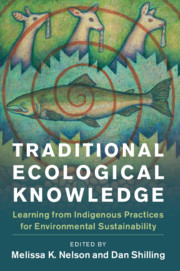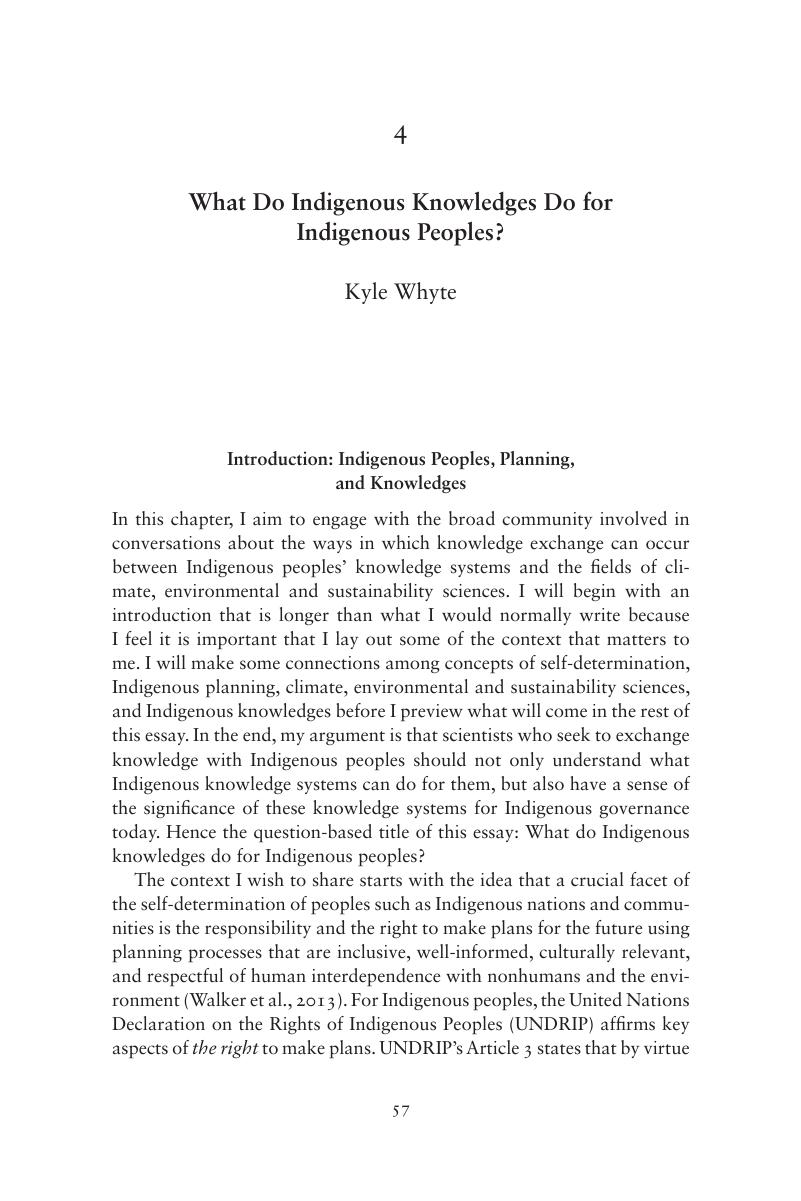 Traditional Ecological Knowledge
Traditional Ecological Knowledge Book contents
- Traditional Ecological Knowledge
- New Directions in Sustainability and Society
- Traditional Ecological Knowledge
- Copyright page
- Contents
- Editors and Contributors
- Preface
- Part I Introduction to Key Concepts and Questions
- 1 Introduction: The Soul of Sustainability
- 2 Native Science and Sustaining Indigenous Communities
- 3 Mishkos Kenomagwen, the Lessons of Grass: Restoring Reciprocity with the Good Green Earth
- 4 What Do Indigenous Knowledges Do for Indigenous Peoples?
- Part II Bedrock
- Part III Extended Web
- Part IV Global and Legal Implications of Indigenous Sustainability
- Index
- References
4 - What Do Indigenous Knowledges Do for Indigenous Peoples?
from Part I - Introduction to Key Concepts and Questions
Published online by Cambridge University Press: 21 September 2018
- Traditional Ecological Knowledge
- New Directions in Sustainability and Society
- Traditional Ecological Knowledge
- Copyright page
- Contents
- Editors and Contributors
- Preface
- Part I Introduction to Key Concepts and Questions
- 1 Introduction: The Soul of Sustainability
- 2 Native Science and Sustaining Indigenous Communities
- 3 Mishkos Kenomagwen, the Lessons of Grass: Restoring Reciprocity with the Good Green Earth
- 4 What Do Indigenous Knowledges Do for Indigenous Peoples?
- Part II Bedrock
- Part III Extended Web
- Part IV Global and Legal Implications of Indigenous Sustainability
- Index
- References
Summary

- Type
- Chapter
- Information
- Traditional Ecological KnowledgeLearning from Indigenous Practices for Environmental Sustainability, pp. 57 - 82Publisher: Cambridge University PressPrint publication year: 2018
References
Works Cited
- 78
- Cited by
